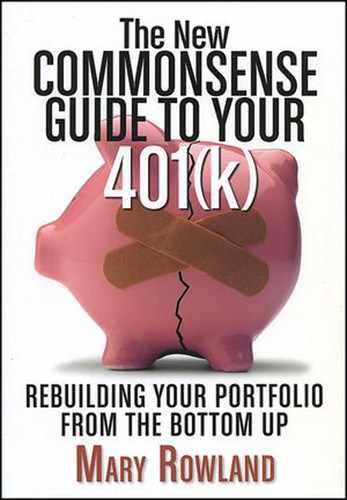THOUSANDS OF HOURS are spent debating the merits of passive management—investing in a static portfolio that is usually designed to mimic a market index—versus active management—active security selection by a money manager. Most of these debates focus on the academic arguments for one versus the other. In fact, the issue is largely one of individual style. Remember the discussion on behavioral finance on p. 124?
Ross Levin, a financial planner from Minneapolis, said it best when he introduced a panel on active versus passive management at a financial planning conference. Levin said that he uses actively managed funds because he enjoys doing the research to find the funds. Active managers are more interesting to him and more interesting to his clients. Maybe they want to know which sports team the fund manager supports or his favorite restaurant. "Active managers keep my clients interested and keep them in the investment game," Levin said. Yet he acknowledged that if he preferred passive management he would no doubt attract clients who prefer passive funds. "What I think really matters is that you believe in what you're doing and have passion for it," Levin said.
Intellectually the argument for indexing is a strong one. I suspect most professionals accept it, as do most amateurs like me. Yet each and every one of us secretly believes that our guy will be the one to beat the odds.
Consider Burton G. Malkiel, author of A Random Walk Down Wall Street, a friend of John Bogle, and a great advocate of indexing. In his book, he explains that because the markets are efficient, most active managers fall behind the market index. Yet Malkiel uses active funds himself. He also argues that investing can be fun. "A successful investor is generally a well-rounded individual who puts a natural curiosity and an intellectual interest to work to earn more money." That means picking active managers. Paul Samuelson, the Nobel laureate economist whose work was instrumental in the development of index funds, invests in Berkshire Hathaway, the company run by Warren Buffett, the best-known investor of our time. Even Vanguard's Bogle buys some actively managed funds.
There's really no contradiction here. As Malkiel says in his book, the fun of investing is to pit your intellect "against that of the vast investment community and to find yourself rewarded with an increase in assets." I won't be pitting my intellect against the vast investment community. But I've certainly had my share of actively managed funds, including a few value funds I sold recently because they were worth less than I paid for them ten years ago. But I could make the argument that, even if you did no better than the index, or slightly worse, it still might make sense for you to use active managers if that helps you learn about investing and keeps you in the market. In other words, if it helps soften those two investing emotions (fear and greed) that too often pull us into the market or push us out without any mathematical underpinnings at all and at the very worst time.
So there is no right and wrong. How do you feel about your investing? What will help you to hang in there? If your eyes glaze over at the thought of reading the Wall Street Journal, if you'd rather be listening to the opera or country music, stick to passive investing. If you can't wait to tuck in with a cup of tea and Outstanding Investor Digest, you're going to be bored by index funds. Study up on active managers.
Of course, index funds and active funds need not be mutually exclusive. Think of it as a continuum, ranging from investors who index their entire portfolio, to those who use index funds as a core and selects active funds to complement them, to those—like Morningstar managing director Don Phillips—who use all active managers. Could it have anything to do with the fact that Phillips did graduate work in literature at the University of Chicago and planned to become a college professor? I think so. Phillips likes a dollop of romance with his investing choices. We all fit in somewhere along the continuum, based chiefly on the passion each of us has for investing and our risk tolerance.
